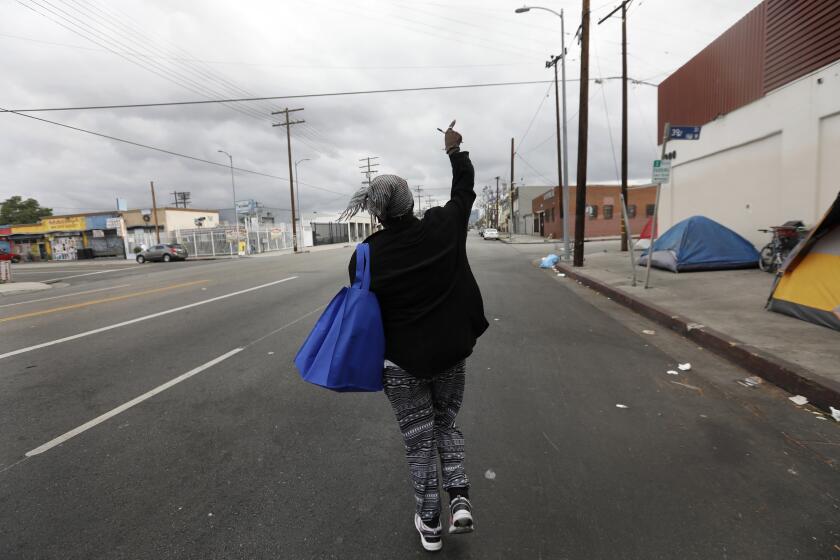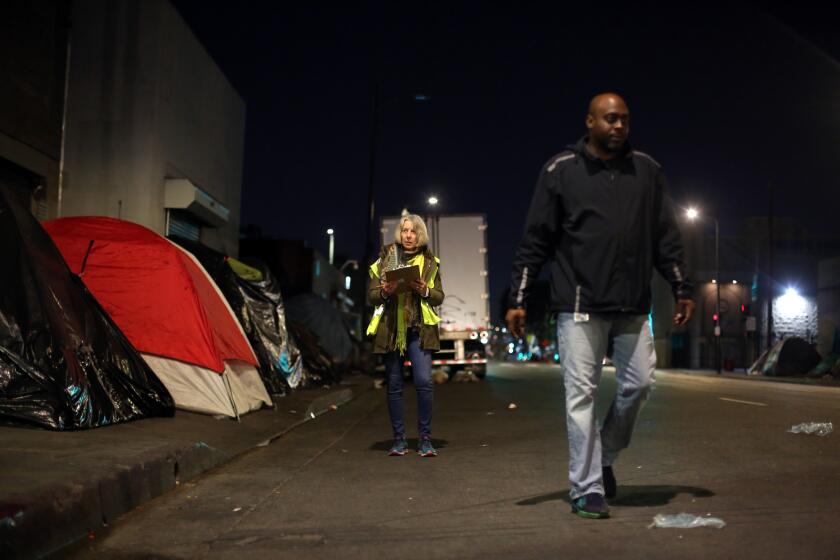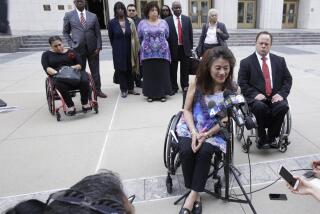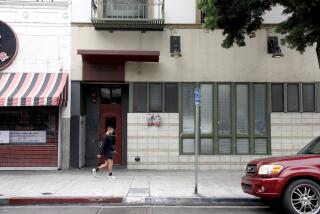Case closed: Judge keeps restrictions on downtown L.A. homeless sweeps
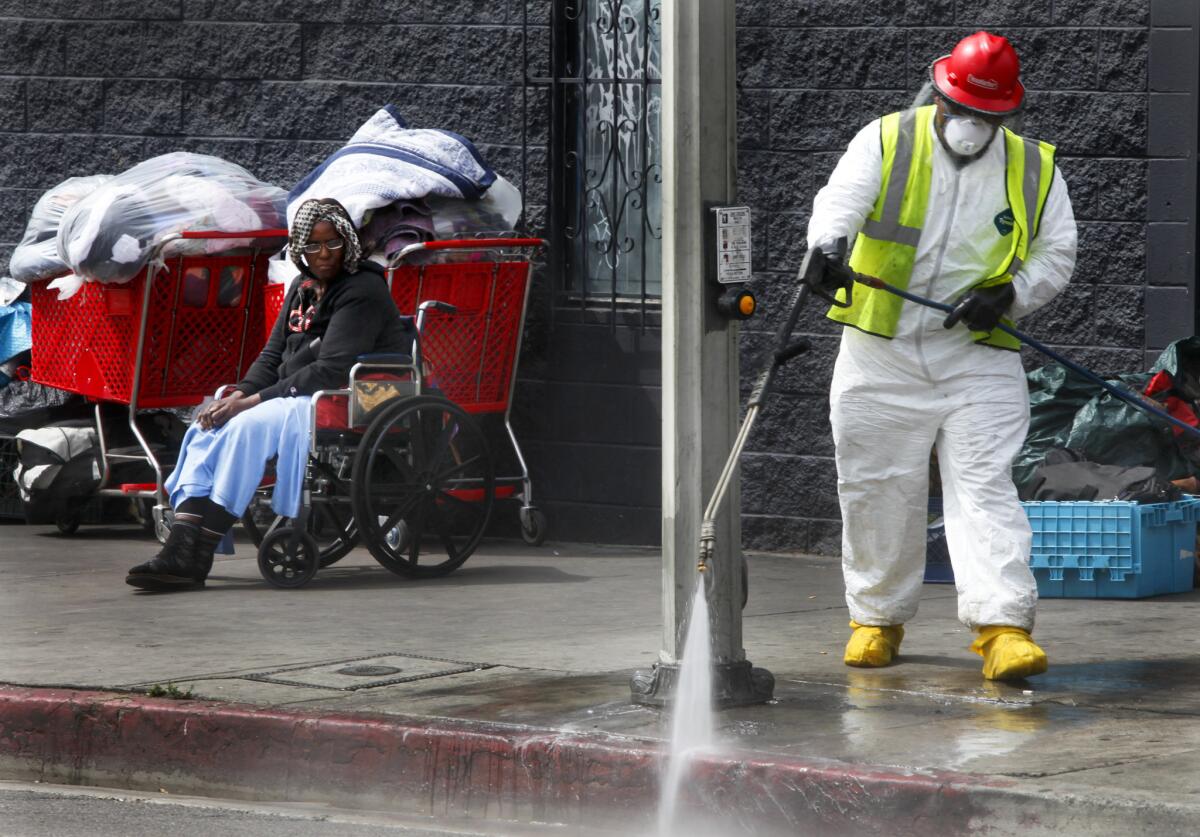
A legal settlement restricting the city from clearing homeless encampments on skid row has survived a court challenge, but the judge said business owners could file a separate claim if they can show that the agreement has adversely affected their property.
U.S. District Judge S. James Otero in Los Angeles rejected a petition filed in July by downtown property owners and residents and the DTLA Alliance for Human Rights to block the settlement. Otero said the settlement, which the city reached in April, closed the case.
âThe court concludes that it lacks jurisdiction over the litigation,â Otero wrote in the ruling Tuesday.
The decision stems from a lawsuit brought in 2016 by homeless individuals and advocates who accused the city of using camp cleanups to drive homeless people out of the squalid downtown district.
Later that year, the judge ordered the city to stop confiscating and destroying homeless peopleâs property on skid row and surrounding streets, unless it was crime evidence, contraband or an immediate threat to public safety or health.
First in a series: Big Mama and her neighbors live in a homeless encampment in Los Angeles. Through a special housing initiative theyâll soon have the opportunity to move into apartments.
The cityâs settlement this year with homeless people and advocates incorporated the limits that the judge set in 2016. The city also agreed to store all confiscated property and make it available for pickup within 72 hours, or if it consists of medication, medical equipment, sleeping bag or blankets, within 24 hours.
In their petition, the petitioners contended that the settlement âwill only extend and worsen the [homelessness] crisis we are facing in this city.â
The DTLA Alliance also accused the city of negotiating in secret and of withholding the terms of the deal, preventing them from jumping into the case sooner.
Property owner Harry Tashidjian argued that his risk of fire damage and vandalism had increased âexponentiallyâ in recent years, driving up his security and pest control costs.
Los Angeles Homeless Services Authority missed several goals in its contract with L.A. to get people into shelters, housing and treatment, an audit says.
Otero, citing Tashidjianâs statements, said if âthese types of allegationsâ are true and âtraceableâ to the settlement, the petitioners could bring separate litigation against the city or the homeless people and their advocates.
âProposed intervenors contend, perhaps rightly, that some of plaintiffsâ and defendantsâ actions taken pursuant to the settlement agreement have resulted in adverse consequences to them,â Otero wrote. âIf these types of allegations are true ... proposed intervenors may have standing to pursue independent litigation against plaintiffs or defendants.â
Elizabeth Mitchell, an attorney for the DTLA Alliance for Human Rights, said: âWe absolutely agree with his assessment of pursuing an independent suit, and [it] is something we have been building towards over the past several months. We are reviewing the necessary steps now with our clients.â
More to Read
Sign up for Essential California
The most important California stories and recommendations in your inbox every morning.
You may occasionally receive promotional content from the Los Angeles Times.
